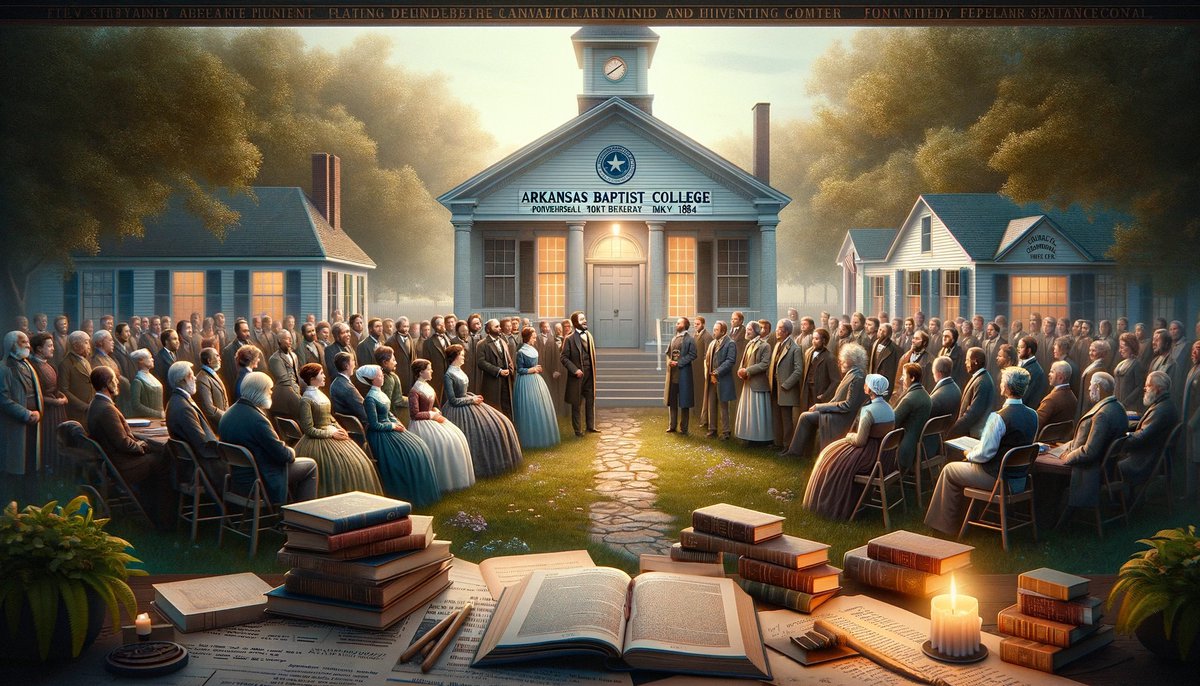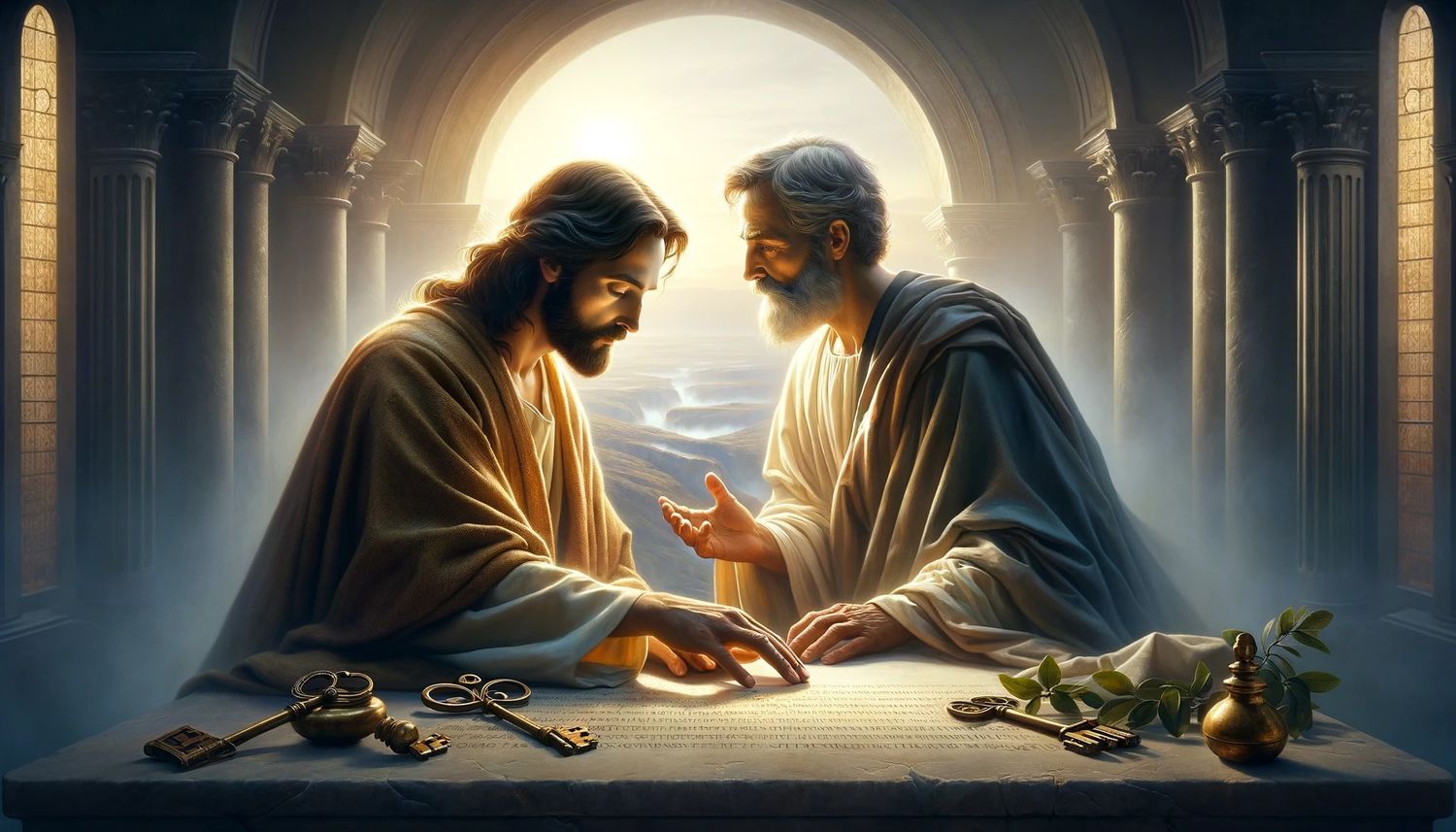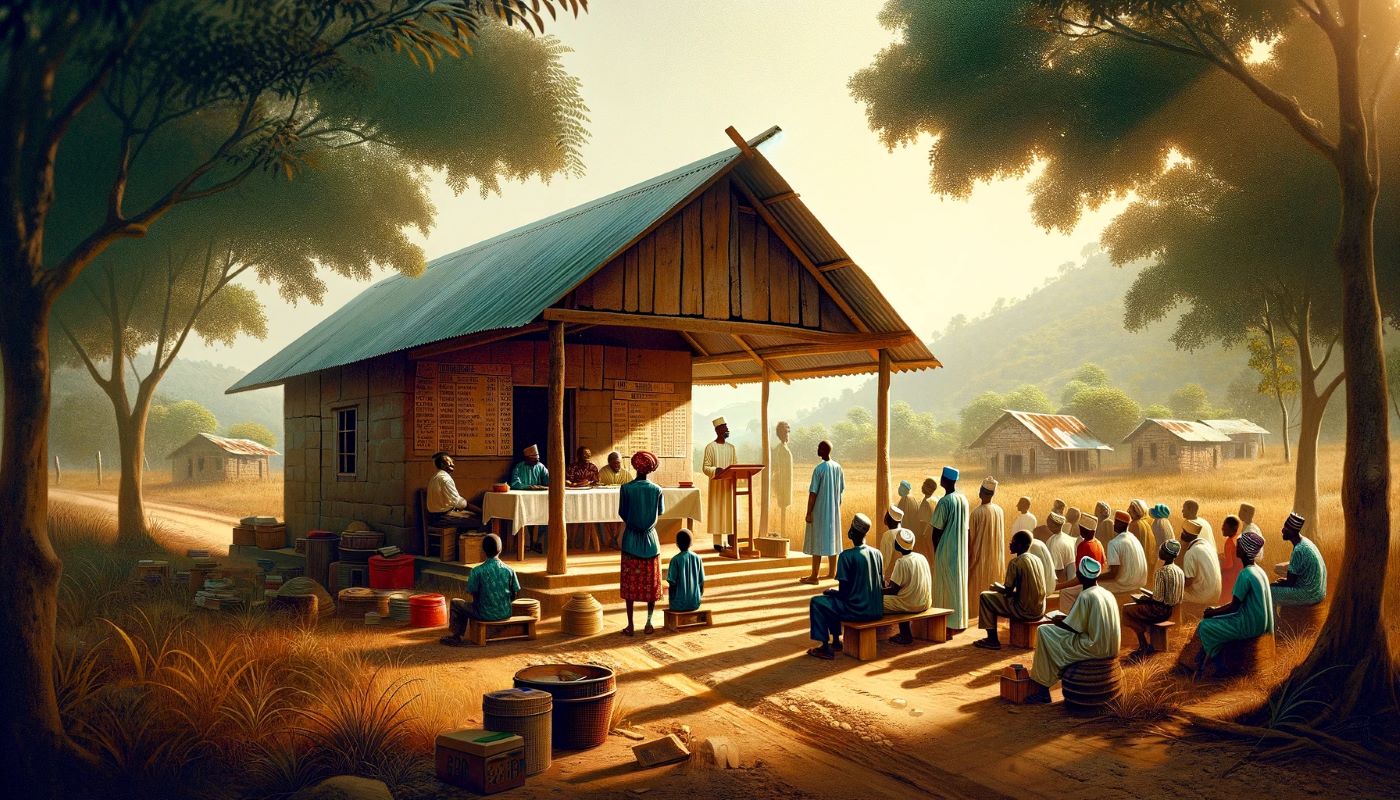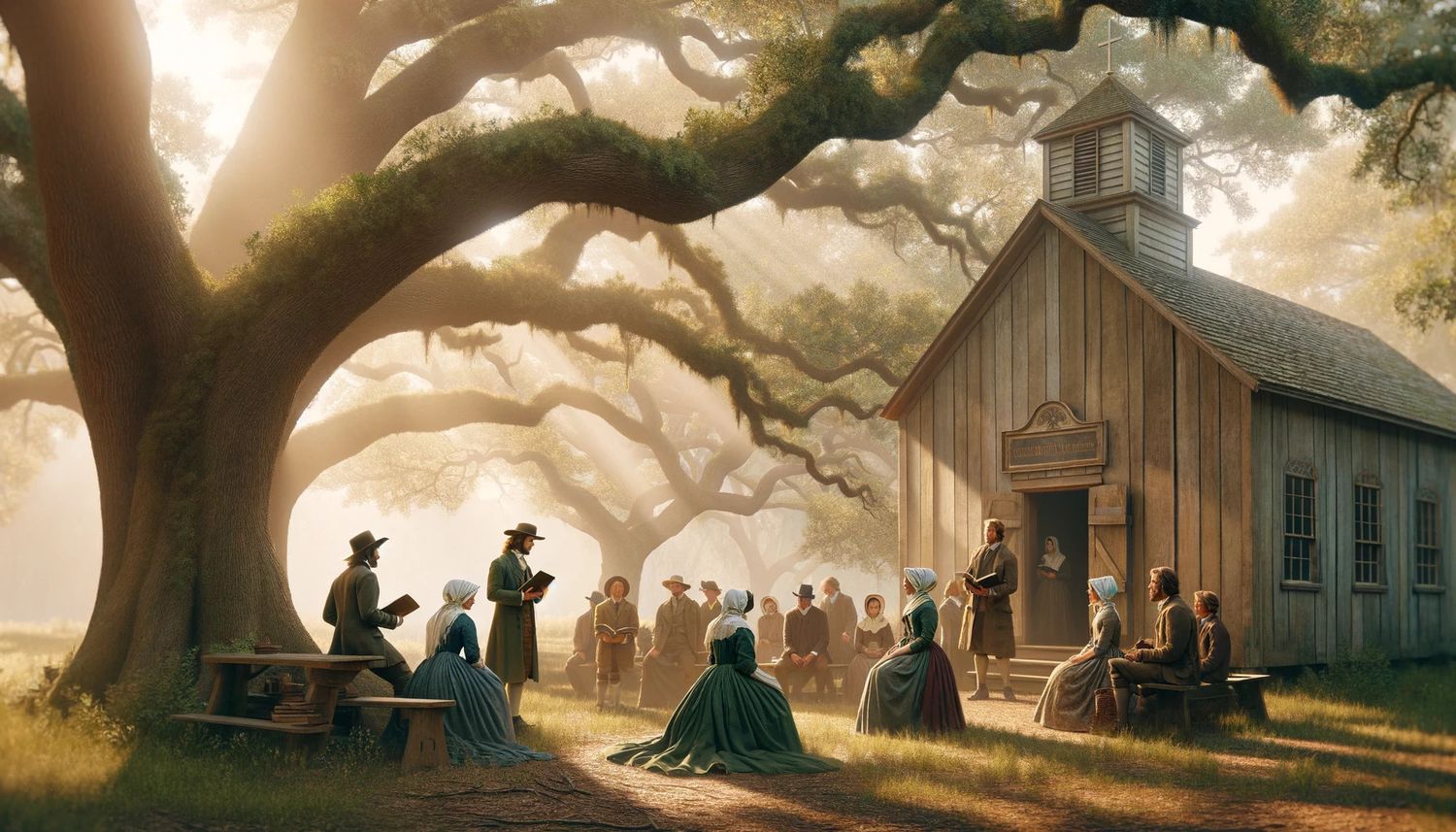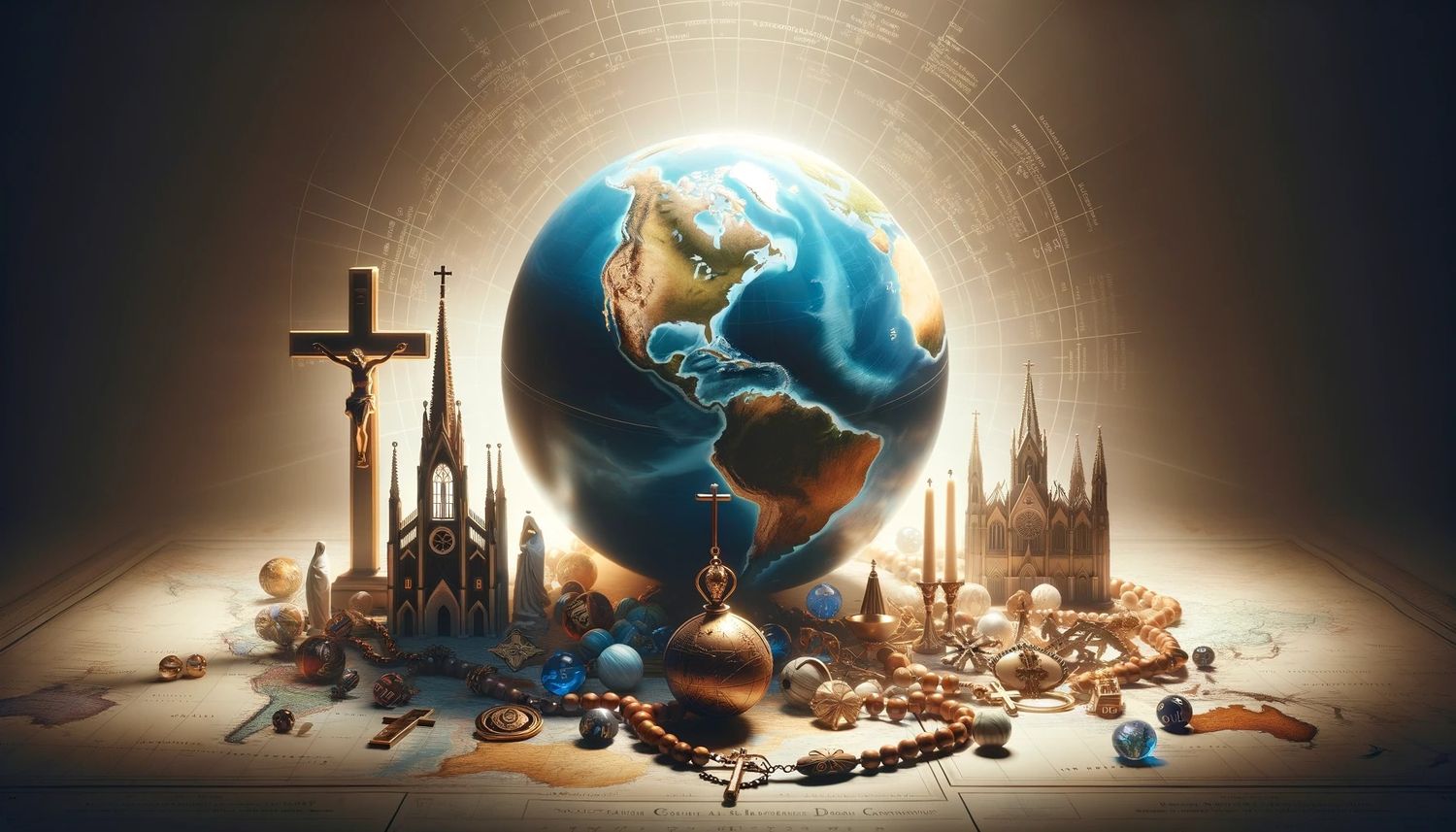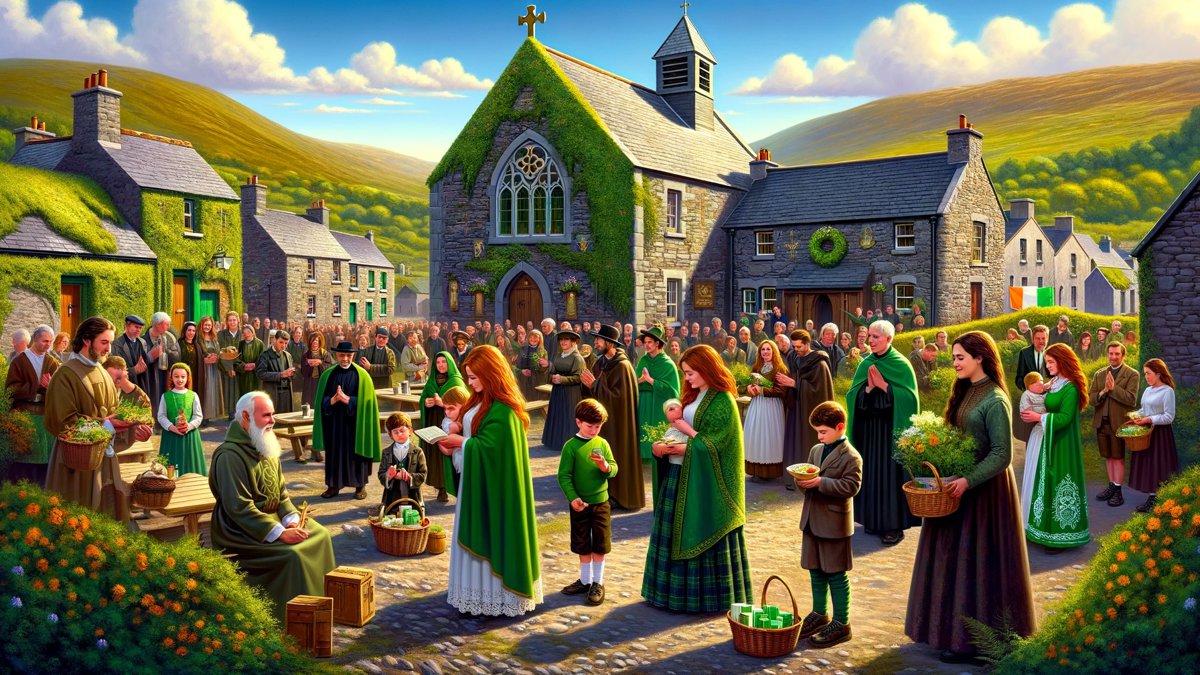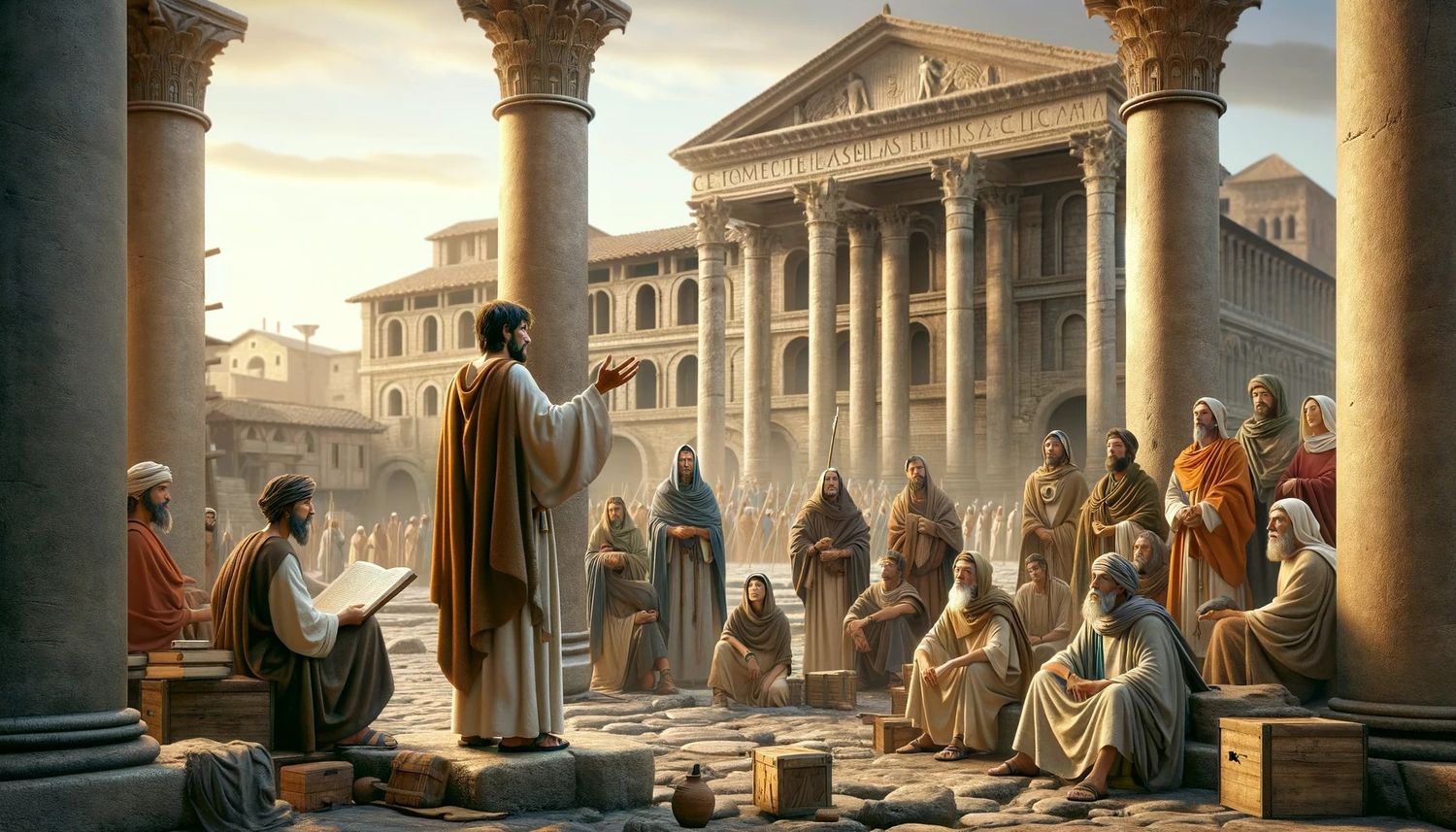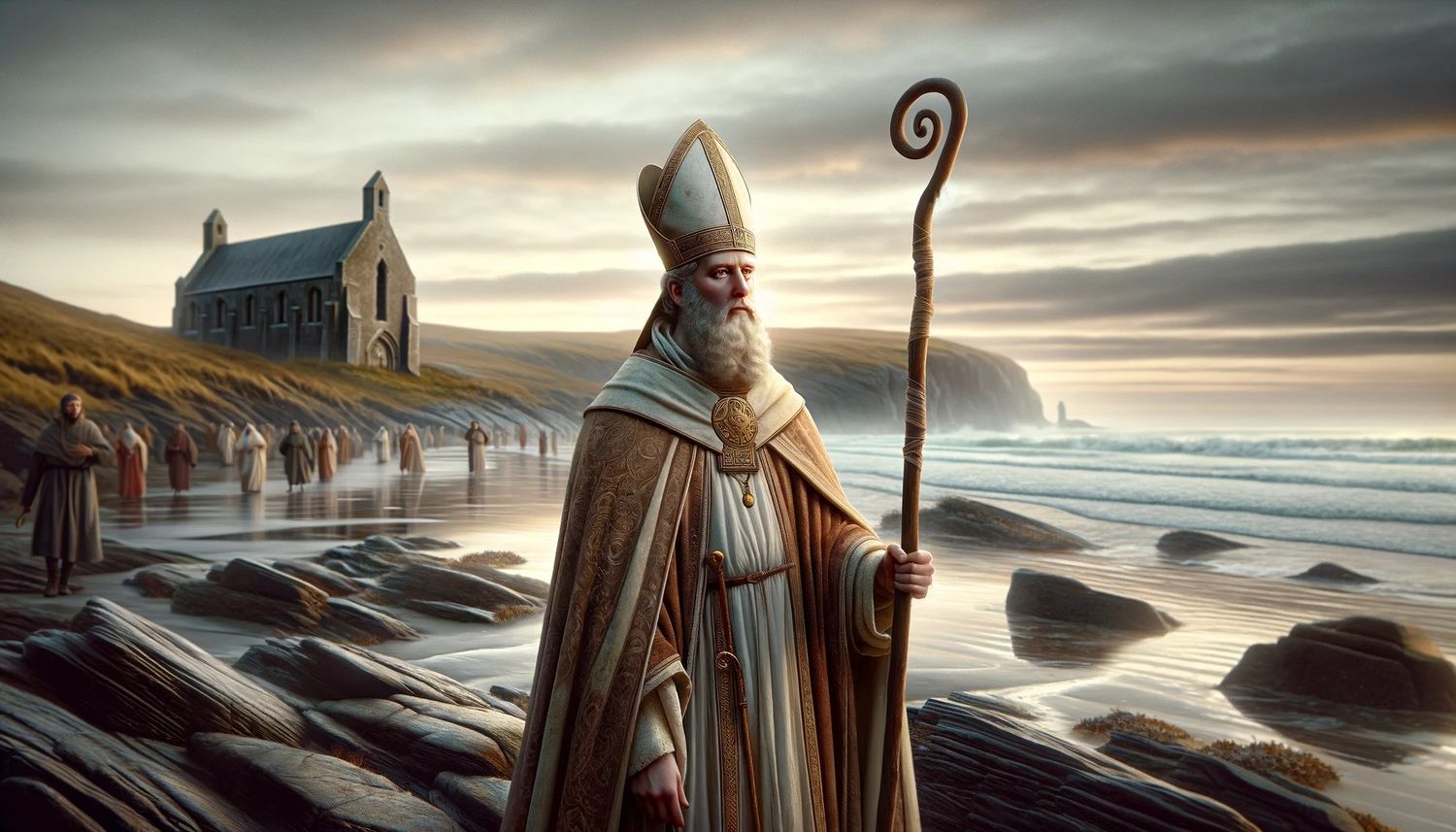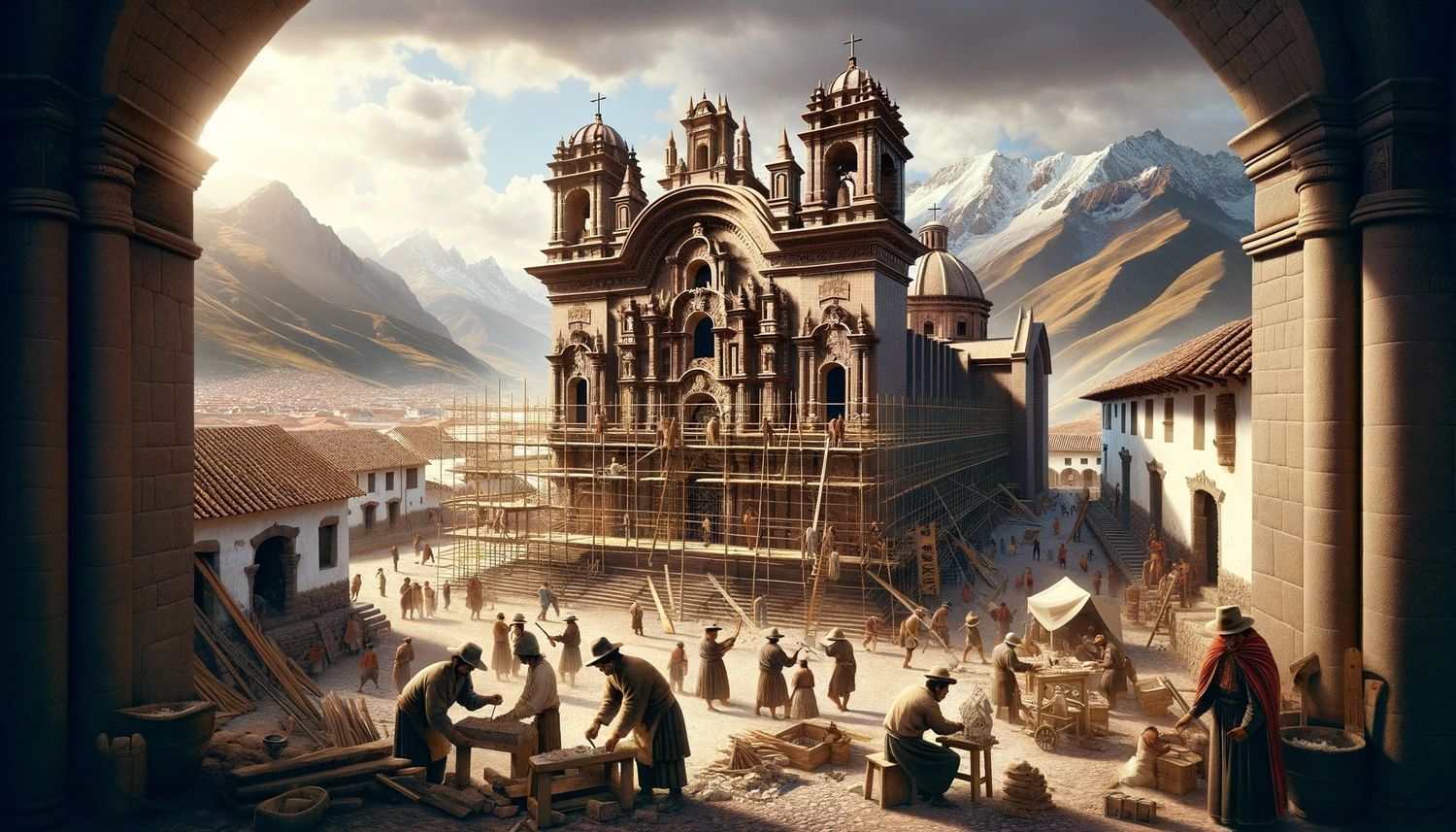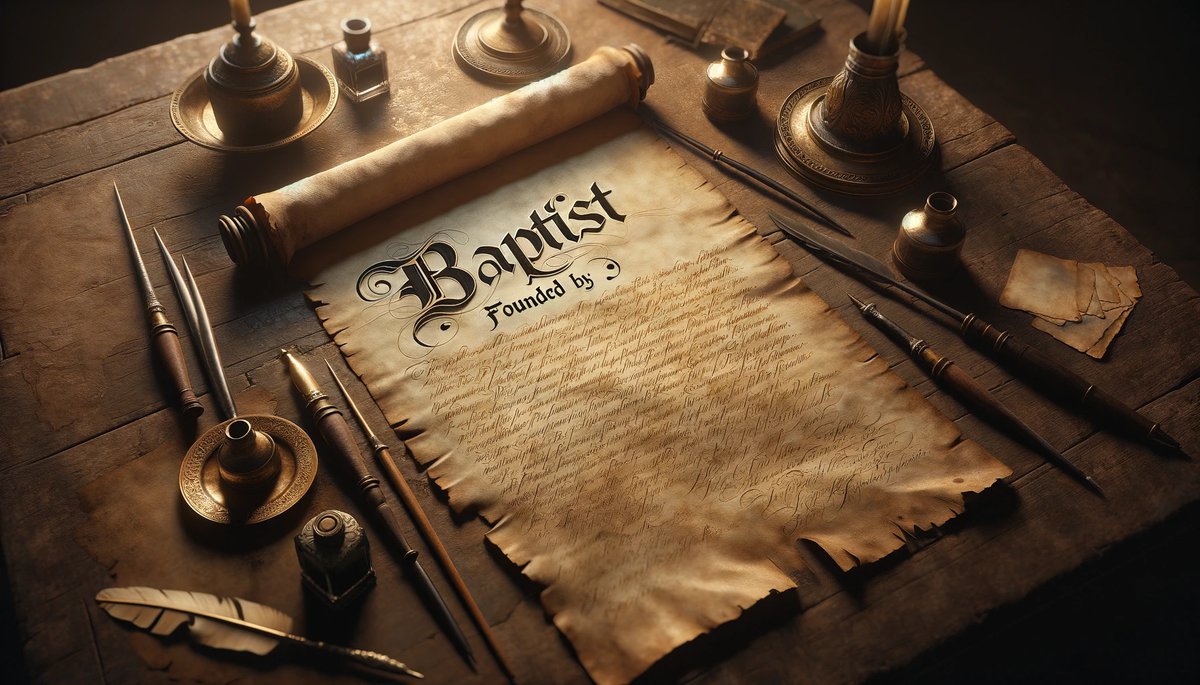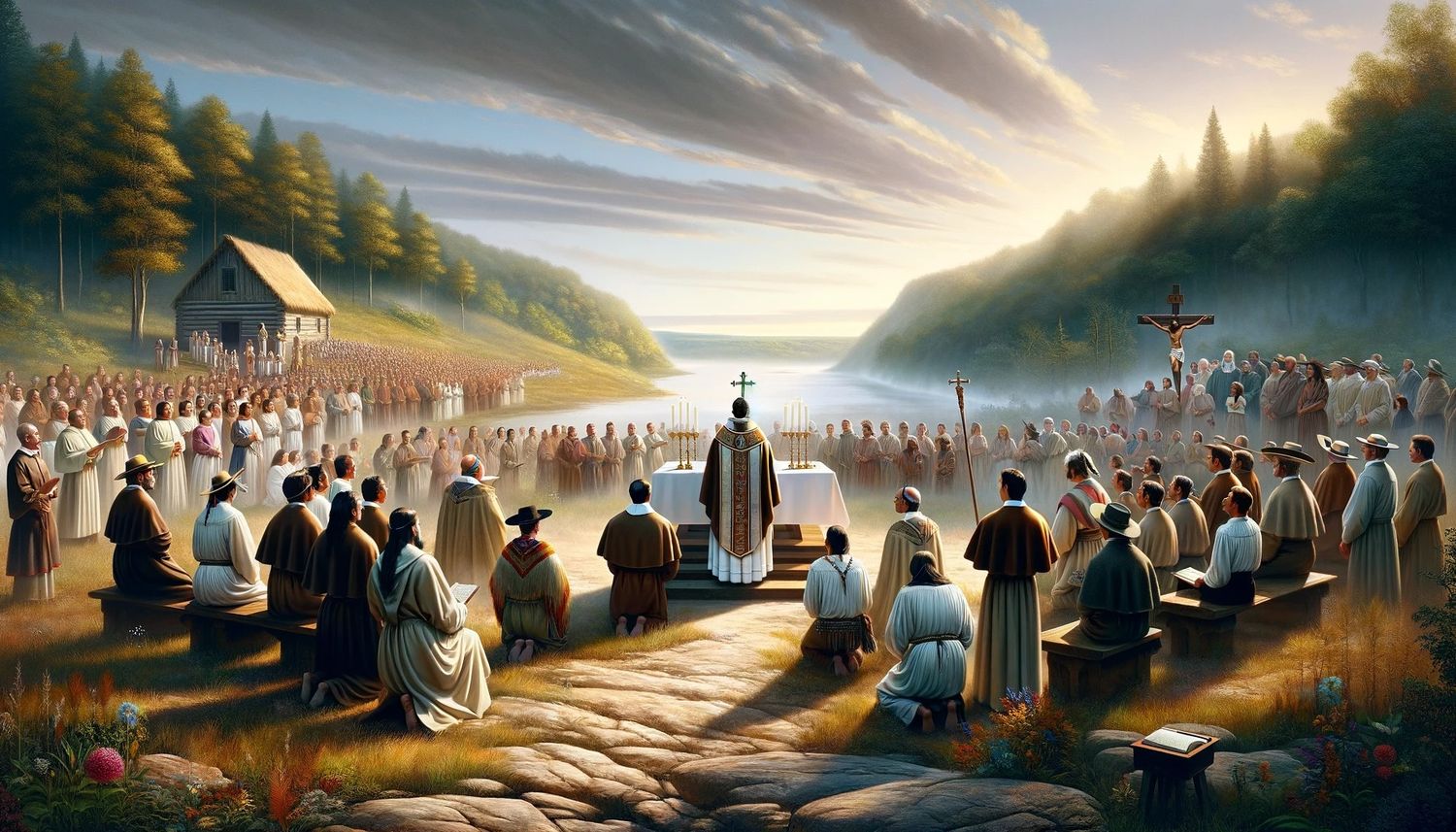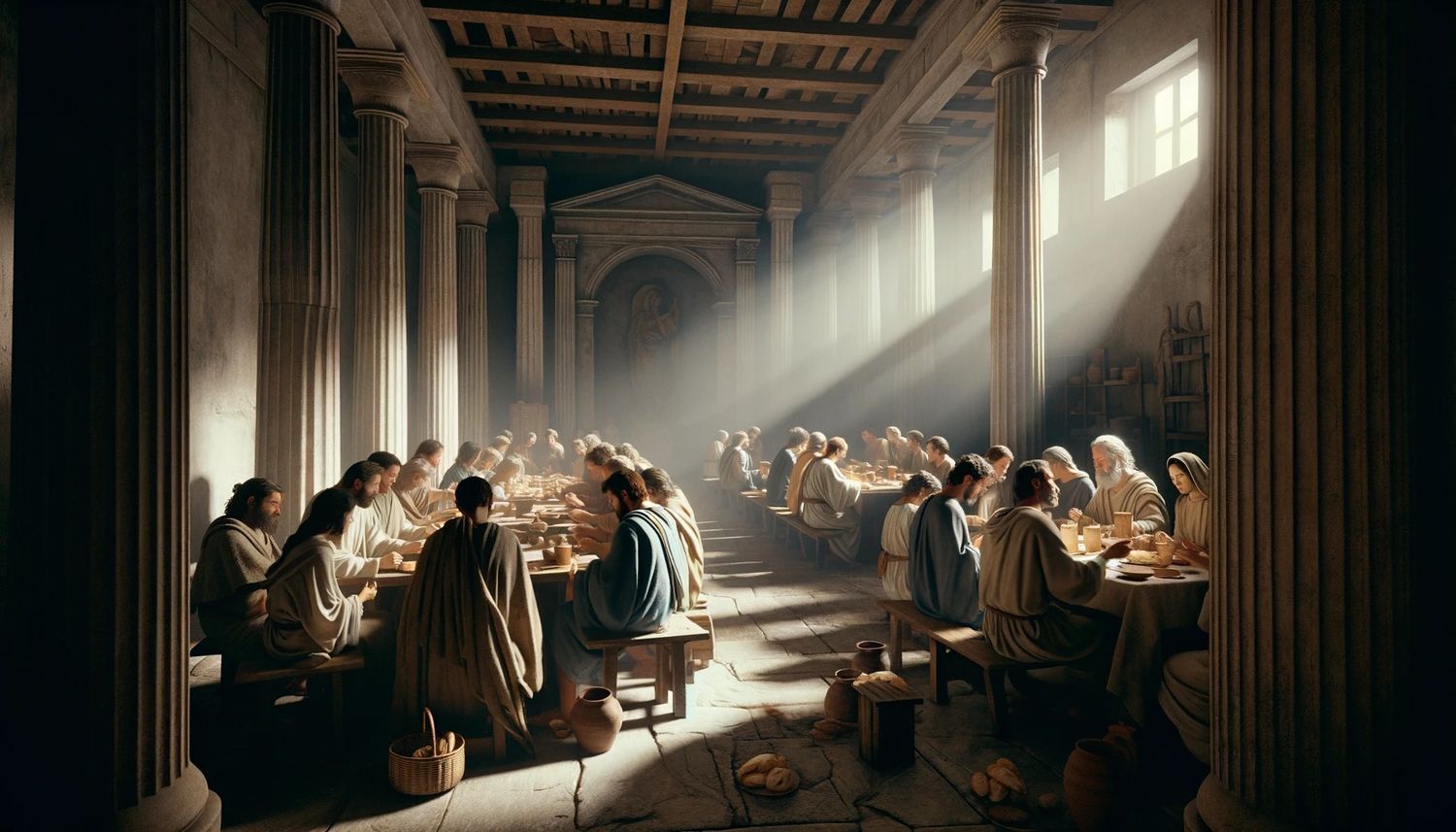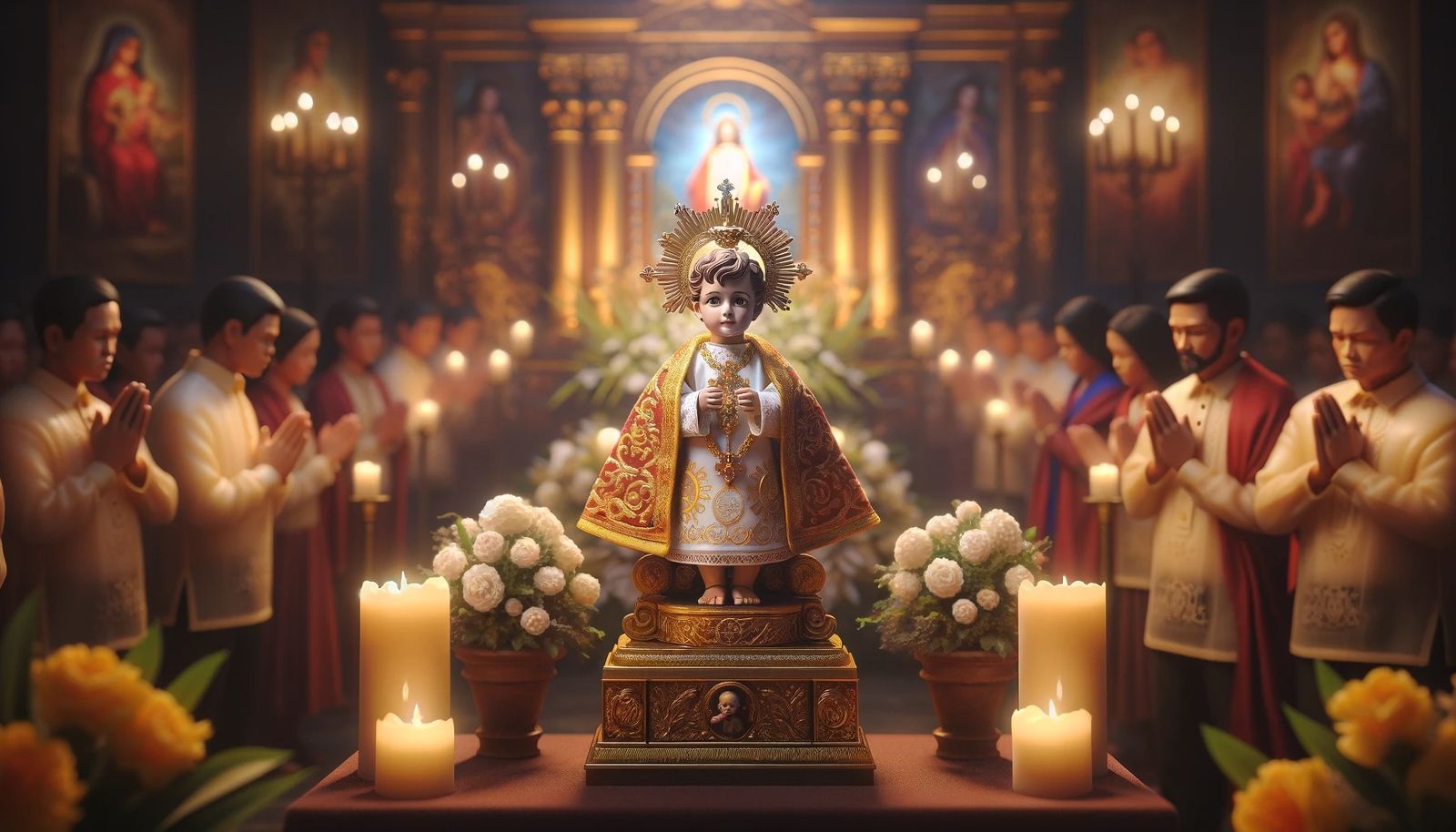Home>Theology and Spirituality>When Was Catholicism Founded?
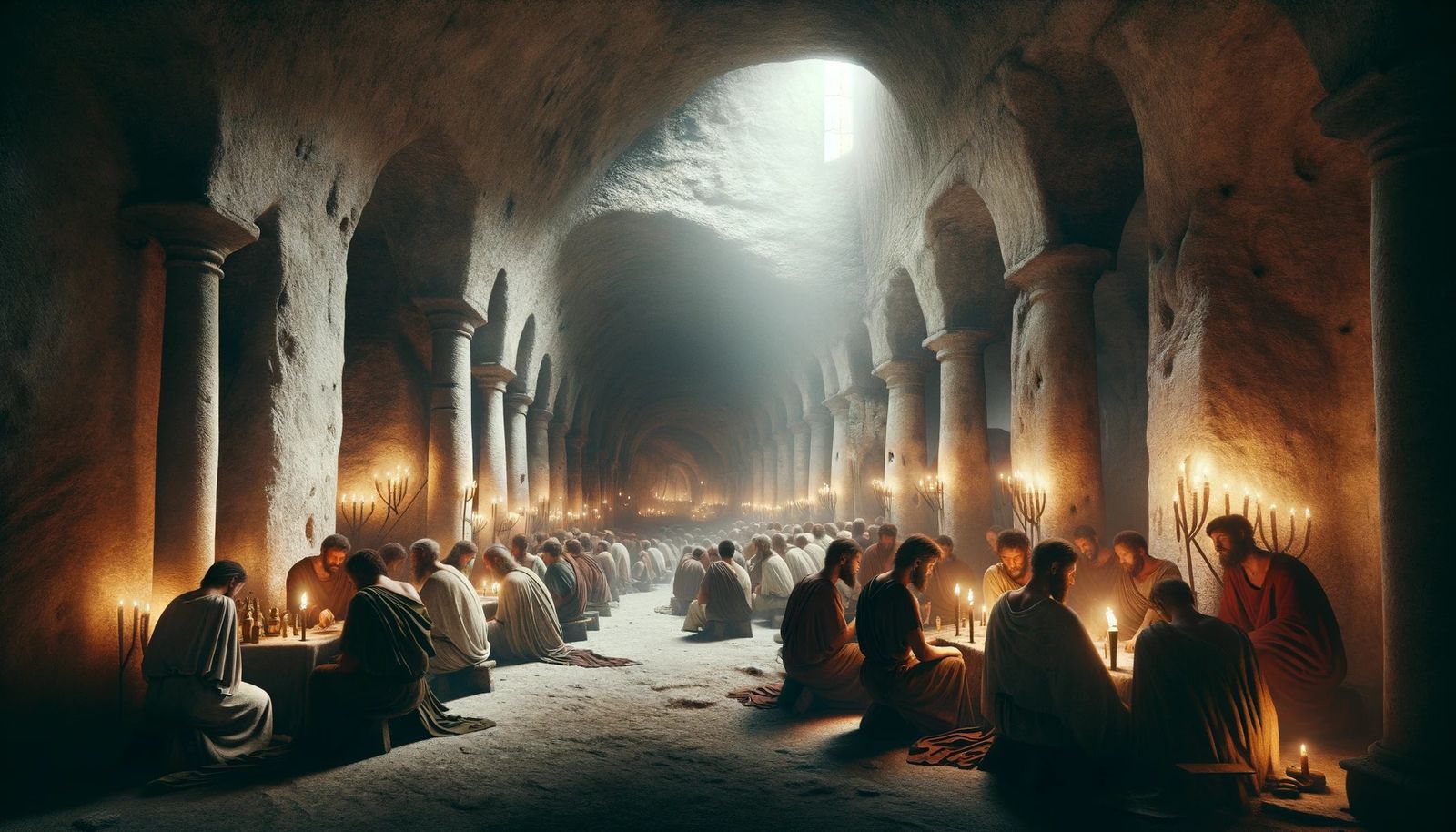

Theology and Spirituality
When Was Catholicism Founded?
Published: February 15, 2024
Peter Smith, Editorial Director at Christian.net, combines deep insights into faith, politics, and culture to lead content creation that resonates widely. Awarded for his contributions to religious discourse, he previously headed a major organization for religious communicators, enhancing dialogue on faith's societal impacts.
Discover the origins of Catholicism and its rich history. Explore the founding of this influential religion and its impact on theology and spirituality.
(Many of the links in this article redirect to a specific reviewed product. Your purchase of these products through affiliate links helps to generate commission for Christian.net, at no extra cost. Learn more)
Table of Contents
Introduction
Catholicism, one of the oldest and most influential branches of Christianity, has a rich and complex history that spans over two millennia. Its origins are deeply intertwined with the life and teachings of Jesus Christ, the early Christian communities, and the evolution of religious practices in the ancient world. Understanding the founding of Catholicism requires delving into the historical, theological, and cultural contexts that shaped its emergence as a distinct religious tradition.
The story of Catholicism is a tapestry woven with threads of faith, tradition, and human experience. It encompasses the struggles and triumphs of countless individuals who have contributed to its development, as well as the enduring impact it has had on societies across the globe. Exploring the roots of Catholicism invites us to embark on a journey through time, traversing the landscapes of ancient Judea, the corridors of Roman power, and the vibrant tapestry of early Christian communities.
As we delve into the origins of Catholicism, we will encounter pivotal figures such as Saint Peter, the apostle chosen by Jesus to lead his church, and Saint Paul, whose missionary zeal spread the message of Christ to distant lands. We will also encounter the theological debates and doctrinal formulations that shaped the early Christian understanding of God, Jesus, and the nature of salvation. These foundational elements laid the groundwork for what would eventually become known as Catholicism.
In this exploration, we will uncover the interconnectedness of historical events, religious beliefs, and cultural dynamics that contributed to the formation of the Catholic Church. From the catacombs of ancient Rome to the grand basilicas of the medieval era, the journey of Catholicism is marked by resilience, adaptation, and the enduring quest for spiritual truth.
Join me as we embark on a captivating odyssey through the annals of time to unravel the enigmatic beginnings of Catholicism, a journey that will illuminate the profound impact of this ancient faith tradition on the course of human history.
Read more: When Were The Gnostic Gospels Found
The Origins of Catholicism
The origins of Catholicism can be traced back to the life and teachings of Jesus Christ and the early Christian communities that emerged in the first century CE. At the heart of Catholicism lies the belief in the divinity of Jesus, his sacrificial death, and his resurrection, which form the cornerstone of Christian faith. The term "Catholic" itself is derived from the Greek word "katholikos," meaning "universal," reflecting the inclusive nature of the faith and its mission to embrace all people.
Jesus, a Jewish teacher from the region of Galilee, embarked on a ministry that emphasized love, compassion, and the coming of the Kingdom of God. His teachings and acts of healing and forgiveness drew a following of disciples who became the foundational community of the Christian faith. Among these disciples, Peter emerged as a central figure, entrusted by Jesus with the leadership of his followers. This pivotal role would later be regarded as the foundation of the papacy, the office of the Bishop of Rome, and the spiritual leader of the Catholic Church.
Following Jesus' crucifixion and resurrection, the early Christian communities began to spread his message throughout the Roman Empire and beyond. The apostle Paul, a zealous proponent of the Christian faith, undertook missionary journeys that carried the teachings of Jesus to diverse cultural and religious contexts. These journeys contributed to the expansion of the Christian movement and the establishment of communities that would later form the basis of the Catholic Church.
The early Christians faced persecution and challenges as they navigated the complexities of living out their faith within the cultural and religious milieu of the ancient world. Despite these obstacles, the Christian community continued to grow, and its theological identity began to take shape. Doctrinal debates, theological reflections, and the formation of sacred texts, such as the New Testament, played a crucial role in shaping the beliefs and practices of the early Christians.
As the Christian movement evolved, the concept of a unified, universal church began to emerge. The term "Catholic" was used to describe the wholeness and universality of the Christian faith, encompassing diverse communities and traditions under a common theological umbrella. This sense of catholicity laid the groundwork for the development of the Catholic Church as a distinct entity within the broader Christian landscape.
The origins of Catholicism are deeply rooted in the historical, cultural, and theological contexts of the ancient world. The early Christian communities, inspired by the life and teachings of Jesus, laid the foundation for a faith tradition that would endure and flourish across centuries and continents. The emergence of the Catholic Church as a universal institution reflects the enduring legacy of those early origins and the profound impact of the Christian message on the course of human history.
The Early Development of Catholicism
The early development of Catholicism represents a pivotal phase in the evolution of the Christian faith and the emergence of the Catholic Church as a distinct institution. During this formative period, the foundational elements of Catholic doctrine, ecclesiastical structure, and liturgical practices began to take shape, laying the groundwork for the enduring legacy of the faith tradition.
One of the defining features of the early development of Catholicism was the consolidation of ecclesiastical authority and the establishment of hierarchical structures within the Christian communities. The role of bishops, as overseers of local congregations, gained prominence, reflecting the organizational framework that would later characterize the Catholic Church. This hierarchical model provided a sense of unity and stability amidst the diverse and geographically dispersed Christian communities.
The articulation of core theological beliefs also marked a significant aspect of this developmental phase. The early Christians grappled with defining essential doctrines related to the nature of God, the divinity of Jesus, and the means of salvation. The formulation of creeds, such as the Nicene Creed, served to articulate and safeguard the fundamental tenets of the Christian faith, providing a doctrinal foundation for the emerging Catholic identity.
Furthermore, the development of liturgical practices and sacramental rites played a crucial role in shaping the religious life of early Christian communities. The celebration of the Eucharist, baptism, and other sacraments became integral components of Christian worship, fostering a sense of communal identity and spiritual nourishment. These liturgical expressions contributed to the formation of a distinct Christian ethos that would later be embodied in the rituals and traditions of the Catholic Church.
Amidst the challenges of persecution and theological controversies, the early development of Catholicism witnessed the cultivation of a resilient and cohesive Christian identity. The writings of influential theologians and church fathers, such as Augustine of Hippo and Ignatius of Antioch, provided theological insights and pastoral guidance that contributed to the maturation of the Christian community.
The early development of Catholicism laid the groundwork for the enduring legacy of the faith tradition, shaping its theological, ecclesiastical, and spiritual dimensions. The consolidation of ecclesiastical structures, the articulation of core doctrines, and the cultivation of liturgical practices formed the bedrock upon which the Catholic Church would continue to evolve and thrive, leaving an indelible mark on the tapestry of human history.
The Establishment of the Catholic Church
The establishment of the Catholic Church represents a watershed moment in the history of Christianity, marking the crystallization of a distinct religious institution with a universal mission and enduring influence. This pivotal phase, unfolding over centuries, witnessed the convergence of theological, ecclesiastical, and cultural forces that culminated in the emergence of the Catholic Church as a formidable presence in the religious landscape.
Central to the establishment of the Catholic Church was the evolving role of the Bishop of Rome, who came to be recognized as the successor of Saint Peter and the spiritual leader of the Christian community. The concept of papal primacy, rooted in the belief that Peter was entrusted by Jesus with the leadership of his followers, gradually solidified, laying the foundation for the papal office and the hierarchical structure of the Church.
The Councils of Nicaea (325 CE) and Chalcedon (451 CE) played pivotal roles in defining the doctrinal parameters and ecclesiastical governance of the nascent Catholic Church. These ecumenical gatherings addressed theological controversies, affirmed key doctrines, and established a framework for the authoritative interpretation of Christian faith, thereby shaping the identity and unity of the Church.
The codification of sacred scripture, particularly the compilation of the New Testament canon, contributed to the consolidation of the Church's theological foundation and the dissemination of a standardized body of sacred texts. This process of canonization, guided by the early Church fathers and ecclesiastical authorities, solidified the scriptural basis of Catholic doctrine and worship.
The missionary endeavors of saints and evangelists, such as Patrick, Augustine of Canterbury, and Cyril and Methodius, extended the influence of the Catholic Church across diverse regions, fostering the spread of Christian faith and the establishment of vibrant Christian communities. These missionary efforts contributed to the cultural and spiritual integration of diverse peoples into the fabric of the Catholic Church.
The establishment of monastic communities, exemplified by the contributions of Saint Benedict of Nursia, engendered centers of learning, spirituality, and charitable work, serving as bastions of Christian faith and cultural preservation. The monastic tradition became a vital force in shaping the spiritual and intellectual landscape of the Catholic Church.
In essence, the establishment of the Catholic Church represents the culmination of centuries of theological reflection, ecclesiastical organization, and missionary zeal, giving rise to a global institution with a profound impact on the spiritual, intellectual, and cultural realms. This transformative process laid the groundwork for the enduring legacy of the Catholic Church, shaping its identity as a beacon of faith, compassion, and intellectual inquiry.
Conclusion
The journey through the origins and establishment of Catholicism unveils a tapestry woven with the threads of faith, resilience, and cultural evolution. From the humble beginnings of the early Christian communities to the grandeur of the established Catholic Church, the narrative of Catholicism reflects the enduring human quest for spiritual truth and communal belonging.
The origins of Catholicism, rooted in the life and teachings of Jesus Christ, bear witness to the transformative power of a message that transcends time and space. The inclusive vision of a universal faith, encapsulated in the term "Catholic," resonates with the enduring mission of the Church to embrace all people and cultures. The early development of Catholicism, marked by doctrinal formulation, ecclesiastical organization, and liturgical expression, laid the foundation for a cohesive and resilient Christian identity.
The establishment of the Catholic Church represents a pivotal chapter in the history of Christianity, characterized by the convergence of theological insights, ecclesiastical structures, and missionary endeavors. The emergence of the papal office, the affirmation of key doctrines, and the dissemination of sacred scripture solidified the identity and unity of the Church, shaping its trajectory as a global institution with a profound impact on human history.
As we contemplate the profound legacy of Catholicism, we are invited to recognize the enduring relevance of its foundational principles: love, compassion, and the pursuit of justice. The Catholic Church, with its rich tapestry of traditions, theological insights, and cultural expressions, continues to inspire and challenge individuals across the globe, offering a vision of faith that transcends boundaries and embraces the diversity of human experience.
In conclusion, the story of Catholicism is a testament to the enduring human quest for meaning, belonging, and transcendence. It is a narrative that intertwines the threads of history, theology, and spirituality, inviting us to contemplate the profound impact of this ancient faith tradition on the course of human civilization. As we navigate the complexities of the modern world, the journey through the origins and establishment of Catholicism serves as a beacon of hope, resilience, and the enduring power of faith to shape the human experience.
